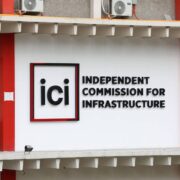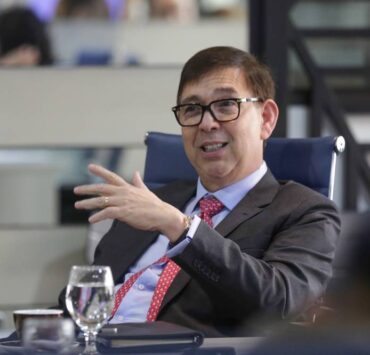Weighed down by inflation

President Marcos should have an added spring to his step these days as he prepares to deliver his fourth State of the Nation Address next week, buoyed by the hard-won improvement over the last two months of his trust rating.
According to the results of the Social Weather Stations (SWS) survey released last week, 48 percent of Filipinos said they trust him and his leadership, an impressive 10-percentage point rise from the 38 percent in May. This was the first time that Mr. Marcos’ trust rating rose by double-digits since 2024, a feat that Malacañang branded as “growing public recognition of the administration’s efforts and accomplishments.”
This view was seconded by Dindo Manhit, founder and managing director of the Stratbase Group, the advisory and research consultancy group that commissioned the SWS survey of 1,200 Filipino adults nationwide. “The significant increase in President Marcos’ trust rating signals a possible renewed public confidence in his administration,” said Manhit, “He must sustain these trust ratings since they are crucial indicators of political stability and governance performance.”
Indeed, Mr. Marcos stands to easily lose that fragile trust improvement if his administration fails to fully address the issue of inflation, which has dogged him from the start of his presidency in 2022.
Urgent concern
Based on the latest Pulse Asia Ulat ng Bayan survey, controlling inflation remained Filipinos’ top national concern with three of five Filipinos citing the steady increase in the prices of basic goods and serves as their most urgent issue.
This urgent concern was raised across all geographical areas and also across all socioeconomic classes, proof enough that even if the rate of inflation has slowed considerably over the past few months, it has yet to truly make a difference in household income. Clearly, however, the Marcos administration is making significant progress in tackling inflation, which settled at 1.4 percent in June, a considerable slowdown from the 3.7 percent recorded in the same month last year, according to the Philippine Statistics Authority.
The June number brought the average in the first half of this year to 1.8 percent, below the official target range of 2-4 percent of the Bangko Sentral ng Pilipinas. This bolsters the case for the central bank to continue cutting its policy rate that should, in turn, translate to lower borrowing costs for individuals and corporations.
That inflation has slowed the Marcos administration credits to the continuing decline in the prices of rice, a key staple that is part of the everyday purchases of most Filipinos.
Campaign promise
This is due in part to the overall decline in prices of rice in the world market, but the government can be given some credit for implementing programs and introducing policy actions to boost local output and improve distribution to lower the cost of rice, the single most important crop in the Philippines whose price movements have political implications.
It is no surprise therefore that Mr. Marcos is still haunted by his campaign promise to bring prices of regular milled rice down to P20 a kilogram—they are at P41.57 today—although there are sporadic programs to sell rice at this level in select provinces across the country.
But for Malacañang, the higher level of trust indicated that Filipinos acknowledge that the Marcos administration is gaining some headway, a view supported by the 8-percentage-point drop in the level of concern over inflation in the last Ulat ng Bayan survey of Pulse Asia.
But Mr. Marcos and the other government leaders should not celebrate too much as even if the SWS survey revealed the overall improvement in his trust ratings, the Pulse Asia survey showed he still got the highest disapproval ratings in controlling inflation at 66 percent, albeit the dissatisfaction level has eased from 76 percent in the same survey in June 2024.
Key national issues
Filipinos’ dissatisfaction with government efforts to improve workers’ pay, meanwhile, surged by 17 percentage points since the April survey, making this the fastest-rising issue of national concern among the issues included in the Pulse Asia survey, which include poverty reduction, fighting corruption, and addressing involuntary hunger.
Mr. Marcos only got majority approval ratings in three of the key national issues, led by responding to calamities and protecting the welfare of overseas Filipino workers, translating to disappointing marks in the other issues that are of utmost importance to the majority of Filipinos. Thus while Mr. Marcos can take the win from the welcome surge in his trust rating, his rejoicing will have to be cut short to make way for a sober assessment of where his administration is at midway into his term.
He and his lieutenants will do well to listen closely to what the people are emphatically saying in these surveys, that he has laid down some accomplishments, but much more clearly must be done to usher in the promised “Bagong Pilipinas.”





















